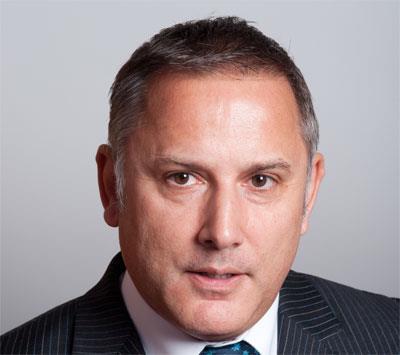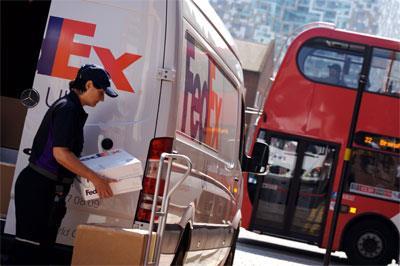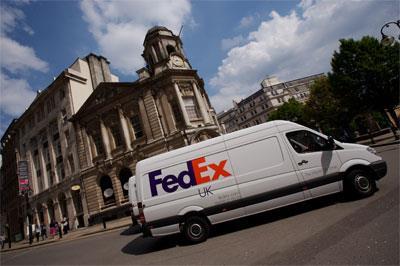
Since joining FedEx Express in 1995, Trevor Hoyle (pictured) has seen both the parcels industry and the way the company operates change dramatically, especially with the internet bringing new challenges. As he steps up to his new role as vice president, operations UK and Ireland, for FedEx Express and FedEx UK, the company is continuing to streamline its business and bring together the two separate operations that it has been formed of since the acquisition of domestic express carrier ANC in 2006.
“Whilst we still have two legal entities in the UK, to a large extent we are integrating some functions,” he tells MT. “We have completely integrated our sales teams now. Operationally we’ve been moving ever closer together, and over the last 18 months to two years we’ve been starting to synergise and move our operations under the same roof for last mile delivery.”
Bringing together the two companies, one international (Express) and one domestic (UK), has taken a number of years, but Hoyle explains that the company did not want to rush into it and risk creating problems for its customers.
“If you look at the UK it’s littered with horror stories of trying to integrate international and domestic businesses,” he says. “We were clear that we didn’t want to repeat any of those disasters.
“We bought a good business and we didn’t want to damage that. We wanted to turn [ANC] from a good business into a world class business.”
Integrated
The two businesses are now largely operating as one. Hoyle explains that FedEx has an ‘air-ground strategy’, so if the shipment involves transport by air, it is put through its international network before being fed into its integrated ground operations to enter the road network.
Bringing together the two businesses has helped it improve the service it is able to offer its customers, as well improving the efficiency of its own operations. It has introduced later pick-up times, earlier inbound international deliveries, and is ensuring that all parcels heading for the same area are on the same vehicle, regardless of what country they originated from.
While many of FedEx’s rivals seem to be attempting to drive more volume into their networks and deliver for the lowest possible price, Hoyle says that is not how the company operates. While it still wants to win and retain business, it wants to do this by providing a better service than its rivals, rather than offering prices that may be unsustainable. He says that customers have left the carrier in the past in favour of a cheaper service, but have then come back because they prefer the premium service FedEx offers.
As a result of this strategy, safety equipment supplier Arco has just renewed its contract with FedEx Express for five years, and has also won more business with UK gourmet coffee e-tailer Has Bean.
“We want to make sure that we can grow our bottom line by continuing to be more efficient and improve service because that’s what’s going to help us retain business and win new business,” he says. “With the ever-increasing market pressures on yield, we don’t want to be chasing the market on price.”

Hoyle says FedEx is relaxed about increasing the capacity of its networks, unlike some of its rivals, expanding only a couple of its depots last year. It also opened a new regional hub in October and regional sortation site in Enfield, though these were not needed to absorb last year’s peak volumes.
“I would imagine that in a few years’ time we would probably [open] another regional sort,” says Hoyle. “We’ve already evaluated where we could have one in the future but it’s something that will sit in the parking lot until we get to the point where we need to bring on more capacity.”
Flatter peak
The Christmas peak has been getting flatter for FedEx Express over the past few years, mainly because it has tried to balance its B2B and B2C volumes throughout the year to limit the number and size of its peaks and troughs.
“One of the things we decided a few years back was that we need to work better with our customers in terms of their forecasting and planning, especially if you’ve got B2C customers,” says Hoyle. “One of our objectives for the UK is not to be the biggest in terms of volume but to be the best in terms of service and that’s about consistency all the way through the year.”
Improving its impact on the environment is also high on the company’s agenda and has been investing in telematics to reduce fuel consumption and CO2 output. Due to the strength of its brand, the company wants to maintain a green image and is actively trying to improve driving styles.
It is currently running a number of Nissan NV200 electric vehicles in London as part of a global trial, following a successful test of Modec vehicles a couple of years ago, 10 of which are still on the road. While the electric vans work well in city centres, Hoyle concedes that they are currently not viable in less urban areas.
“We’re keen to work with [manufacturers] like Nissan because they share our aim to reduce some of the impact on the environment and to use alternative technologies,” Hoyle says. “It enables us to give them good feedback as their technicians visit regularly, and we have sessions with their management team so we can help them improve those types of vehicles.”
It has also invested in a few LPG vehicles, but Hoyle says availability of the fuel is often limited.
Alternative technology
Although it is not running any longer semi-trailers as part of the DfT trial, it currently has 50 double-deck trailers in operation. Cartwright, which provided the trailers, worked closely with the operator in both the design and specification stages to ensure that they were exactly as required.
Hoyle says: “I’m really keen to see someone come along with alternative technology for big trucks that’s viable, because each one of those trucks is driven about 97,000 miles per annum. That’s a lot of mileage and that’s where our big fuel burn in is, hence why we’ve invested in telematics.”
He says FedEx hopes to start introducing a different mix of vehicles depending on the area they are operating in, especially as it has begun to bring regional hubs into operation. Since the acquisition of ANC, it has changed its vehicle acquisition model from leased to owned, and after buying 20 new units last year its mainly Mercedes-Benz fleet is now around 95% Euro-5.
Euro-6 is not something that FedEx is currently looking into, mainly due to the long lead times and the high cost of the investment. It does much of its own maintenance, outsourced a portion because the operation is too large to bring it all in-house.
Driver shortage
In the face of a predicted industry-wide driver shortage once Driver CPC comes into force in September, around 97% of FedEx’s drivers have now completed the full 35 hours of training. It also runs a ‘warehouse to wheels’ programme in which warehouse staff are trained to become drivers, and now it has “broken the back” of Driver CPC training Hoyle says this programme will resume in earnest.

Investing in FedEx’s workforce is something Hoyle is enthusiastic about, citing the operator’s ‘people, service, profit’ ethos. He firmly believes that recruiting, training, and retaining the right people within its business will help deliver a good service, which will in turn keep customers on board.
As a result, Hoyle got those working on the frontline to rewrite its operational procedures based on what will help them do their jobs properly.
His management team is also monitored closely, with review meetings every six weeks to ensure that the company’s performance is up to scratch. Hoyle tells MT that he once won a £5 bet that its hub in Stoke, where he is currently based, would get a rarely-achieved ‘outstanding’ internal audit assessment, rather than the usual ‘acceptable’, a result he puts down to his workforce’s constant desire to strive to be the best.
“We recognise that we’ll never be perfect but unless you strive for perfection you’re never going to get close to it,” he says. “The fact that we put them under intense scrutiny every six weeks is no way saying we’re not happy with the job they’re doing, but it’s that culture that if we believe we are doing a good job then we stop improving.”
While some of its rivals have slipped into the red since the recession hit, Hoyle points out that this is not the case for FedEx. As he gets to grips with his new role as the man responsible for FedEx’s entire UK and Ireland business, including the commercial as well as the operational side, he is keen to ensure this continues.
“Despite tough economic times we have continued to grow both in financial and in volume terms since 2007,” he says. “We’ve seen a lot of people buying volume but we want to grow our business in a sustainable way for our shareholders and employees. It’s no good just chasing the market.”














